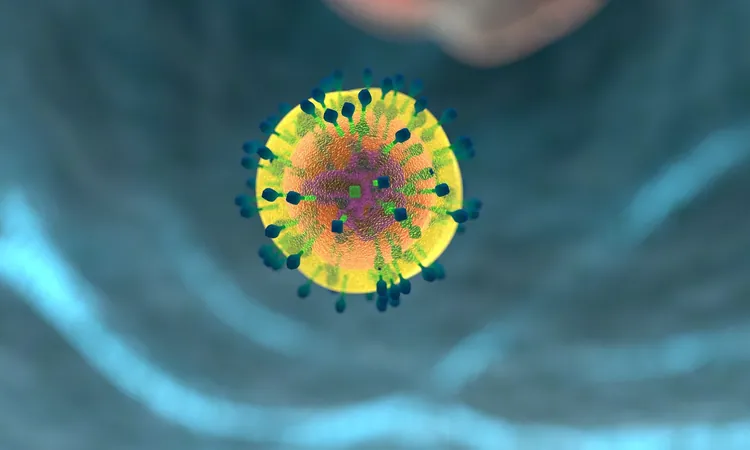
Revolutionizing Immunotherapy: AI Transforms T-Cell Development with Cutting-Edge Protein Design
2025-08-01
Author: Siti
Unlocking T-Cell Potential with AI Innovations
In a groundbreaking study featured in Cell, scientists have tapped into the power of artificial intelligence to enhance T-cell based immunotherapies. By designing a novel synthetic ligand that activates the Notch signaling pathway, these researchers are paving the way for more effective treatments against viruses and tumors.
The Challenge of Notch Signaling in T-Cell Activation
Notch signaling is crucial for the differentiation of immune cells into T-cells, which are vital for targeting and eliminating harmful pathogens and cancer cells. However, activating this pathway in laboratory conditions has always been a significant hurdle for scientists.
A Groundbreaking Collaboration
Researchers, led by George Daley, Dean of Harvard Medical School, and his team at Boston Children's Hospital, have made remarkable progress. They engineered a soluble Notch agonist designed specifically for promoting T-cell production in liquid cultures—a major shift from traditional methods that rely on flat surfaces.
Harnessing AI for Protein Design
Utilizing the Rosetta protein design tool—created by David Baker, a 2024 Nobel Prize winner—this team has taken protein engineering to new heights. The Rosetta tool enables researchers to design proteins from scratch, making it a revolutionary asset in biomedical research.
Discovering the Best Configuration for Activation
Collaboration between Boston Children's fellow Rubul Mout and Daley's lab has led to the screening of various multivalent Notch ligands. Their experiments revealed that specific configurations significantly enhance Notch synapse formation, creating a 'signaling hub' that amplifies receptor activation at the points where T-cells interact.
A Leap Forward for Immunotherapy
Daley remarked, "AI-driven protein design is a transformative platform that we've harnessed to develop a synthetic molecule, facilitating T-cell production for clinical applications and boosting immune responses in vivo." He emphasized the potential of this technology to effectively target tumors while enhancing the T-cells' ability to attack cancer.
A New Era for Vaccines and Immune Regeneration
Rubul Mout, the lead scientist, expressed enthusiasm about the implications of this research, stating, "Activating Notch signaling opens countless doors in immunotherapy, vaccine innovation, and the regeneration of immune cells." With these advancements, the future of immune therapies looks promising, potentially changing the game against cancer and infectious diseases.



 Brasil (PT)
Brasil (PT)
 Canada (EN)
Canada (EN)
 Chile (ES)
Chile (ES)
 Česko (CS)
Česko (CS)
 대한민국 (KO)
대한민국 (KO)
 España (ES)
España (ES)
 France (FR)
France (FR)
 Hong Kong (EN)
Hong Kong (EN)
 Italia (IT)
Italia (IT)
 日本 (JA)
日本 (JA)
 Magyarország (HU)
Magyarország (HU)
 Norge (NO)
Norge (NO)
 Polska (PL)
Polska (PL)
 Schweiz (DE)
Schweiz (DE)
 Singapore (EN)
Singapore (EN)
 Sverige (SV)
Sverige (SV)
 Suomi (FI)
Suomi (FI)
 Türkiye (TR)
Türkiye (TR)
 الإمارات العربية المتحدة (AR)
الإمارات العربية المتحدة (AR)